Written by UP Media and Public Relations Office
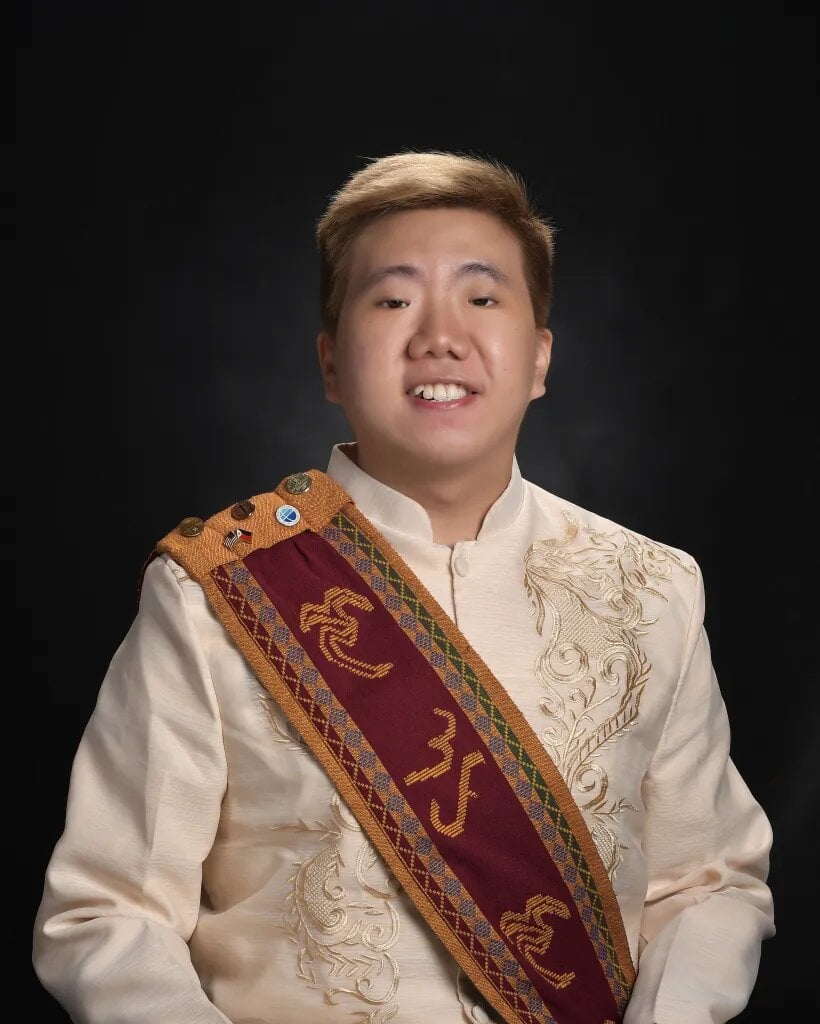
Virgilio Roi C. Adaptar
Cum laude
BS Food Technology
College of Science and Mathematics, University of the Philippines Mindanao
My name is Virgilio Roi C. Adaptar, 24 years old, born and raised in Davao City, and people call me VR. I am a graduate of the BS Food Technology program at the College of Science and Mathematics, University of the Philippines Mindanao.
My research interests include probiotics, valorization of local produces and agricultural by-products, and nutrition, all anchored on the principles of inclusivity and sustainability.
I used to compete as an Adjudicator in the UP Mindanao Debate Society, and was able to represent the University in various debating competitions and tournaments around the country.
Also, together with my fellow DOST Scholars, I am one of the founding members of the UP Mindanao League of DOST Scholars, the first and the official association of DOST Scholars in the University. I eventually served as the Founding President of the organization, and held various leadership positions throughout my residency.
I am also an active member of the U.S. Government Alumni Association -Davao, the regional chapter of international exchange alumni of U.S. Government-funded exchange and internationalization programs.
I attended McNeese State University during the Fall 2021 semester under the Global Undergraduate Exchange Program (Global UGrad) through the U.S. Department of State, World Learning, and Fulbright Philippines. Upon coming home, I then became an active member of the Global UGrad Scholars of the Philippines Alumni Association.
Overcoming financial difficulties
Growing up, I was well aware of my family’s financial struggles. Scholarships, subsidies, side hustles — these sustained my financial needs throughout my studies. I started taking commissions and part-time jobs way back in high school, because even though I had a scholarship, it did not fully cover all fees and I had to find ways and means for my daily allowance and other expenses. I also saw how difficult it was for my mother to make a living and did not want to keep asking from her anymore.
In college, I was awarded an undergraduate scholarship from the Science Education Institute of DOST, which really helped ease the financial burden. Despite the generous amount I received every semester from DOST, I still opted to do side hustles as the stipend I received was still not enough for me as a self-supporting student in this economic climate. I used to do events hosting, ghostwriting for blogs and other online platforms, arts and crafts commissions, tutorials for elementary and high school students, and eventually I became a call center agent, and later on transitioned into being a freelance virtual assistant. I should say, being a working student was difficult and would not want to romanticize it. If I only had the option and the privilege to be a full-time student, I would not want to work while studying just to make ends meet.
I am not that typical “straight uno” student who would often be celebrated for academic prowess. I would rather refer to myself as a student who had the capacity to endure. This led me to being selected as one of the four Filipino students, and the only Mindanaoan, for the prestigious Global Undergraduate Exchange Program for the Fall 2021 batch. Furthermore, grit enabled me to pursue my undergraduate thesis on non-dairy probiotics which also utilized local agricultural by-products. My study won 1st Place in the Oral Research Presentation (Undergraduate Category) of the Philippine Society for Microbiology Mindanao 27th Annual Convention and Scientific Meeting and was nominated as finalist for Best Thesis (Basic and Applied Research Category) in the Department of Food Science and Chemistry of our Ccollege. Currently, I am working towards getting it published in a scientific journal. Finally, I was able to shift my Sablay from right to left when I graduated cum laude last July.
Hardships before becoming an Iskolar ng Bayan
When I was 12, someone power-tripped me and said “You do not deserve to be an honor student,” and slammed their fists on the table. Some people even expected the 12-year -old me to just easily move on from that experience, and that I was just overreacting. Of course, not everyone believes in mental health and trauma. And yes, being an honor student in elementary is not really that big of a deal for a lot of people, but the young and naïve 12-year -old me felt invalidated.
When I was 14, my family faced a huge financial problem and finishing high school was almost taken away from me. I remember seeing my mom, swallowing her pride to ask for help from others whenever I needed something for school, yet she would often be rejected or humiliated. I could even remember some relatives asking me to just drop out of school since class grades “cannot be eaten” and that I should just start working instead to be more useful to the family.
At present, my anxiety is still triggered by all those words said. I still get nightmares once in a while and I still wonder about what goes on in the minds of those people, if they think about what they’ve done, what stories they’ve told their friends, family, and other people. I haven’t exactly figured out how to let the trauma and anxiety go away. Most of the time, I just distract myself.
College seemed to be a great opportunity to pursue more things “to distract myself” and grow up from what happened in the past. And in a place like UP where freedom is highly valued, I felt more free to blaze my own trail and make the most out of my time as an eager young adult.
Org life in UP
With the freedom that we all enjoy in UP, organizations served as a meaningful avenue to grow and develop beyond classrooms and laboratories.
Through the UP Mindanao Debate Society, I was able to enjoy the art of discourse, meet new people in tournaments, and find a safe space among my co-residents. Debating taught me innovative thinking and problem-solving., Aand much more than these, it made me realize the importance of being aware of the issues that we face in society, and that talking about these issues sheds light on the real problems and lived experiences of the various sectors of society, and that the more we talk about these, the more attention we can bring to them to help shake up the status quo.
Moreover, I never initially envisioned that I’ll be a part of a bunch of people behind establishing a new organization. We were freshies back then and we often asked the same question again and again if UP Mindanao already has its own organization for DOST Scholars. Until we ourselves answered our own question. We then established the UP Mindanao League of DOST Scholars (UPMin LeaDS). Not long after, I found myself taking the lead as its founding president. From dancing “batis” during our first Patriot Scholars Formation Program, being duly recognized as a student organization on campus, launching our first project and initiative, and organizing the first Congress we attended as an org; to taking new leadership roles in the organization (as if I was playing “Trip to Jerusalem” and being surprised as to where I would end up next), being a rallying point for academic and moral support for our fellow scholars and aspiring ones, helping revive and mobilize the regional organization of DOST Scholars in Davao, struggling through the chaotic times during the pandemic (and getting a lot of anxious, worried, and confused messages from fellow scholars, all uncertain of what might happen next), and everything in between, I was grateful for the opportunity to initiate and lead. I know that the org is still far from being what it is envisioned to be and that I did have my lapses and shortcomings and a lot of unfinished business and what ifs as a leader, but I am grateful for the trust and confidence shown by the people around me and I am excited to see what’s next for UPMin LeaDS.
Being a working student
My org life in UP sounded fun and stress-free, right? Here’s what was happening beyond the org meetings, projects, and events.
I was not born with a silver spoon, and of course, society is unfair to those who are not that privileged.
At some point, I felt that I was easily exploited by others who saw my background as an opportunity to manipulate and make it work to their advantage, but I did not have much time to think about it back then. I was too preoccupied with the need to put in extra work, to make the most out of meager resources, to always be on the lookout for the next available “raket”, to think of ways on how I could make it from one paycheck to another, from one month’s stipend to the next, to juggle one job and another, switching lanyards or IDs from one shift at work to try to make it on time to the next class in school. I had to look for ways to augment my income while trying to meet deadlines and studying for exams because no one else would.
Hard work is often set as the ultimate factor behind success and our society loves seeing or hearing “rags-to-riches” stories to the point where poverty is romanticized and accepted as a norm. In an ideal world, hard work may be the sole and primary factor for success but we are far from being in that ideal world.
As a Food Technology major, I struggled to go through a typical day in college. It was even more magnified when I was already doing my thesis with very minimal funding. I hope that someday, access and support for quality scientific education will be available for all those who aspire to be researchers, engineers, doctors, educators, scientists, and mathematicians;, and that we may move past being a society that oppresses, deprives, and excludes.
If hard work or “sipag” was the only factor to achieve success, other working students like me should have already been assured of a more comfortable life straight out of college, right? Farmers and laborers would probably be as glorified and celebrated as CEOs and world leaders. However, we are definitely not in an ideal world where hard work is the sole factor behind success.
Plot twist
No, this is not going to be a college love story.
Instead, we go back to one random morning during my sophomore year. It was around 8 AM and I just got out of my graveyard shift at work. My first class for the day, organic chemistry, was at 8:30 and with the one- to two-hour commute from the office to the campus, it would always be impossible for me to make it in time for class.
Towards the middle of the semester, I realized that by being a student by day and working the night shift as a call center agent, I would most likely fail in the class. I thought to myself that if I eventually get a 5.0 in my transcript, I should have some redeeming factor to make up for the anticipated failing grade.
The universe was telling me to let go of my graveyard shift job and just be a full-time student, which was not really sitting well with me given my situation.
I was ready to get my first 5.0 in UP and started to look for options on what I could do to compensate for that in my transcript.
Attend workshops? More debating? Start doing internships (and a lot of them)? Join fellowships? Join another org? Go on an exchange program?
Coincidentally, another professor of mine invited us to an exchange programs roadshow hosted by Fulbright Philippines and I learned about the Global Undergraduate Exchange Program (Global UGrad).
The Global UGrad program is a semester-long exchange program in the United States participated in by over 60 countries that “brings future leaders to the United States to experience U.S. higher education, gain critical professional skills, and explore new cultures and values”.
Asst. Prof. Kriza Faye Calumba, who later on became my thesis adviser, was very instrumental in this endeavor as she encouraged me to apply and even agreed to write a recommendation letter supporting my application.
The things that happened next went in my favor: I got a 4.0 instead of a 5.0 and passed my removal examinations for organic chemistry, I let go of my night shift job and found another job with more flexible working hours, and I got into Global UGrad.
However, the pandemic happened and things went to a pause for a while. I was supposed to leave for the U.S. by August 2020 but the situation was still far from being under control. My program was eventually postponed to Fall 2021.
I will never forget August 12, 2021, –the day I traveled to the United States. Growing up in a family where studying in college seems like a shot to the moon, studying abroad was just as far-fetched.
McNeese State University in Lake Charles, Louisiana became my home for the rest of the semester. I was able to explore concepts in nutrition and food production from an international perspective and also studied microbiology from a clinical perspective and learned about American History with the theme “What is the role of the United States — around the world and at home?”
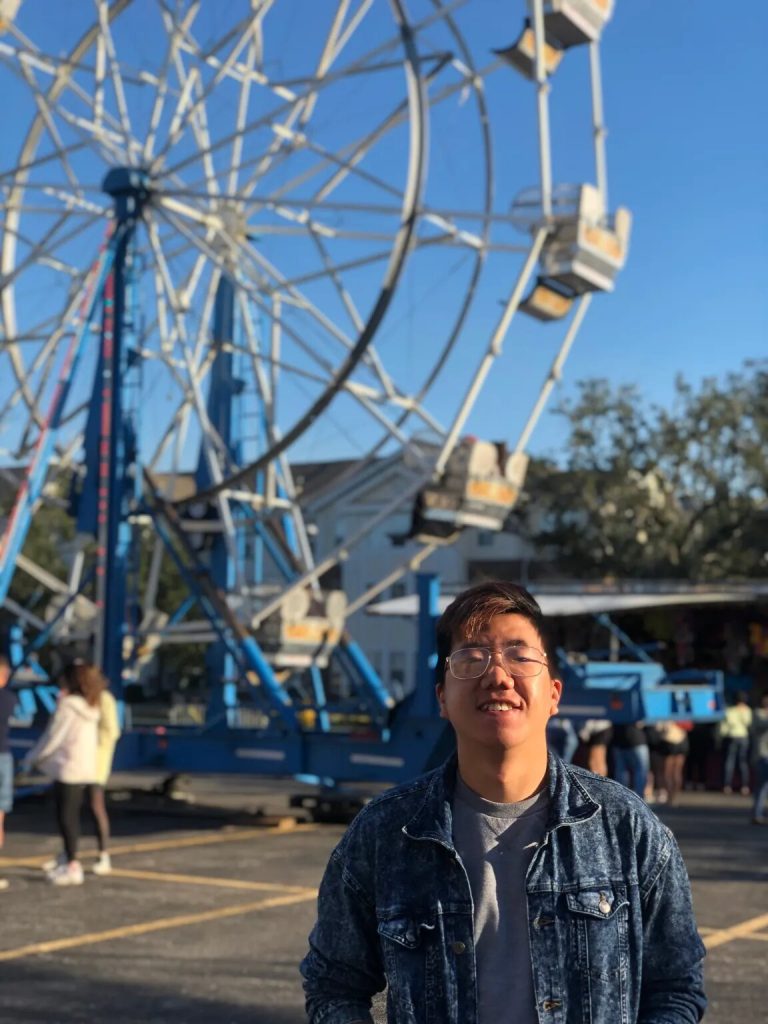
Throughout my stay in the United States, I was also able to watch my first football game in Lousiana State University in Baton Rouge, Louisiana, enjoy the art scene and authentic Texas brisket and barbecue in Austin, Texas, explore some caverns in San Antonio, Texas, visit the historic French Quarter in New Orleans, Louisiana, and celebrate Thanksgiving in Jacksonville, Florida. I also fulfilled a childhood dream of stepping foot inside a space center when I visited the NASA Kennedy Space Center in Cape Canaveral, Florida.
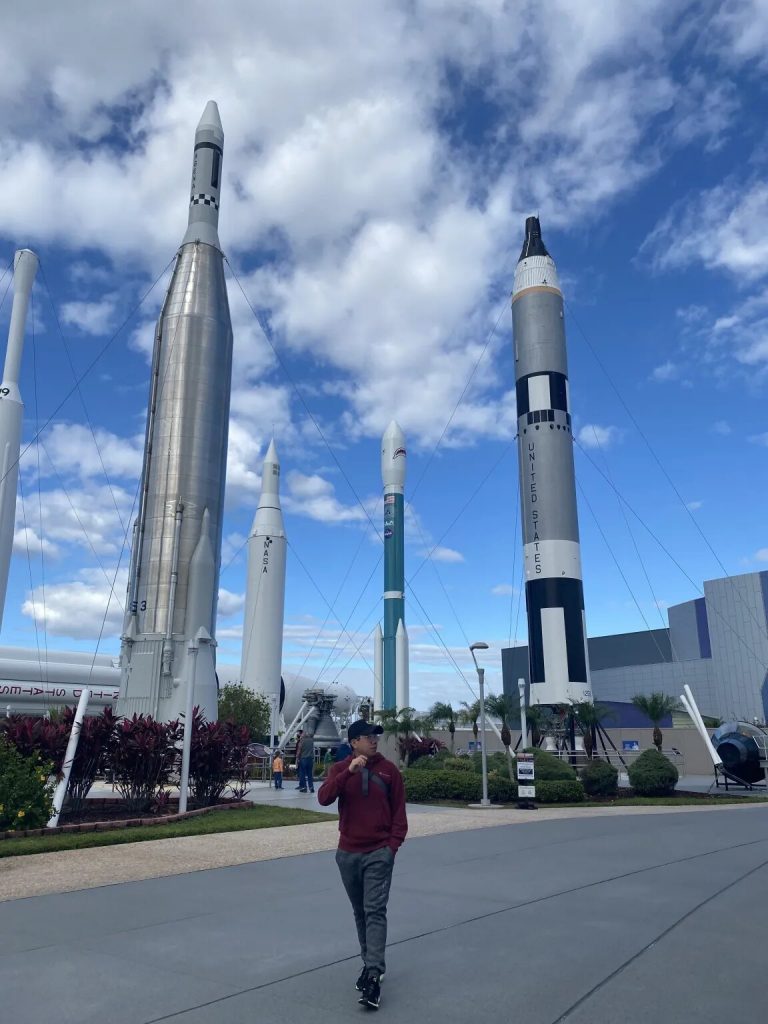
Furthermore, the community engagement component of Global UGrad also allowed me to connect with the community in Lake Charles, Louisiana, and get to know the locals, many of whom were still recovering from two devastating hurricanes that struck the area at the height of the COVID-19 pandemic.
Being an exchange student means that you are also serving as a cultural ambassador of your country, and it was truly an honor to raise the flag of the Philippines. From introducing adobo to my American roommates, showing them the way we cook rice with the trusted finger method for measuring the right amount of water, sharing some OPM songs, teaching some Tagalog and Bisaya words to my American classmates, to assisting a research student in her study on plant-based yogurt, sharing a bit of our shared history between the Philippines and the U.S. in class, and connecting with Filipino-Americans in the area, I believe that I was able to make the most out of my stay in the United States.
Upon coming back home, I continued working on my undergraduate thesis, got involved again with more projects through my organizations, and actively helped in promoting exchange and internationalization opportunities for other Filipino students to help them widen their perspectives and further capacitate them in their chosen fields, and in return, apply what they learned in their respective communities.
Yes, I flew out during the Delta surge and went back home to the Philippines in the middle of the Omicron surge.
Study habits
I can’t say that I really have good study habits. I adjust depending on my mood and physical well-being (e.g., I postpone studying or doing academic work if I feel sick). I don’t force myself to study or do academic work if I still don’t feel like it because I will end up with half-baked or mediocre outputs. One thing that I think worked for me though, is reading or writing at night. I think the peaceful atmosphere between 10 in the evening until around dawn helped me focus, especially during the lockdowns during the pandemic where everyone was at home and awake during the day. Nevertheless, I think it’s a matter of “finding your own groove” and seeing what truly works for you when it comes to studying or doing academic work and requirements, because what worked for me might not be that effective for you. If all else fails, get some sleep.
I should also emphasize that the guidance and mentorship I received from my professors in UP Mindanao, especially the Department of Food Science and Chemistry, made this academic journey seem like I was standing on the shoulders of giants. The pandemic made the semesters too uncertain yet my professors remained nurturing and understanding, especially my adviser, Asst. Prof. Calumba, who truly lived up to her role as an adviser holistically and continued to believe in me at a time when self-doubt almost consumed me.
More tips for students
Lessons I picked up while performing my experiments for my thesis:
-
- I encountered different strains of lactic acid bacteria: some are fast-growers, some grow at just the right amount of time, while others take a bit longer. Like these different bacterial strains, we all have our own different pace in life.
- I did a lot of trial and error for my experiments. I made some mistakes. I made some adjustments. It’s okay to make mistakes in college. We are human, after all. It’s okay to try again. Did it take you a 2nd, 3rd, or nth try before succeeding? Again, it’s okay and you did great! I don’t think there’s such a thing as “lesser success” just because it took you longer.
- Sometimes, I had to stay until 10, 11, or midnight in the lab while waiting for tests to finish and during the wait times in between, I would read or watch videos or do some side tasks (that may or may not have been directly related to my thesis). Yes, college will be exhausting but academics is not the end of it all. Find an alternative outlet or channel which you could also invest your time and energy in.
- I always went back to the objectives of my study throughout my thesis-related works when I felt confused. Always go back to your WHYs, your purpose. This may not exactly be motivating but it can help you recalibrate, redirect, and realign your path in pursuit of your goals.
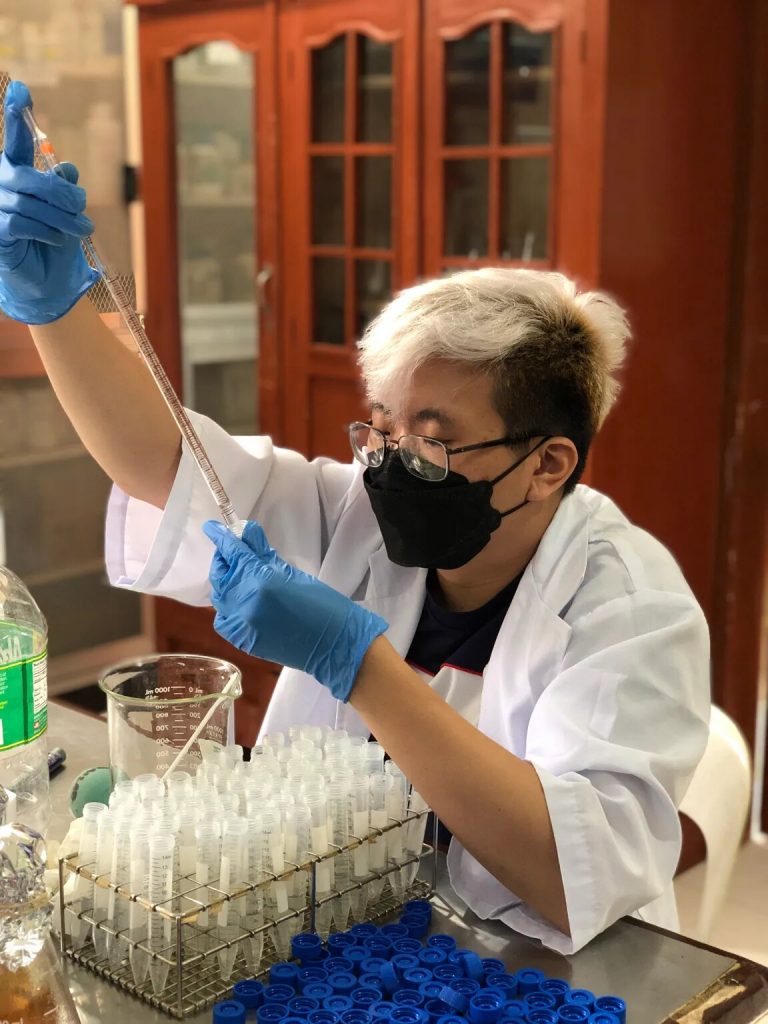
Plans after graduation
I intend to pursue a research and development track and work in the food industry for the next couple of years after graduation. Meanwhile, I also plan to volunteer or contribute to non-profit and civic orgs on the side because I enjoy doing those things as well. Furthermore, I also want to pursue postgraduate studies in food science and technology abroad in the near future.
The true meaning of the sablay
May we be disturbed by the stereotypical status of UP students, graduates, and alumni as “the cream of the crop”, the “upper echelon”, the “best of the best”. This privilege exists because there are others in the margins who are oppressed, deprived, and excluded.
May we be reminded that for every single sablay being shifted to the left, countless others still suffer and struggle with the very systems that they trusted yet failed them. May we also be reminded that for every single sablay being shifted to the left, there remains a lot of space that must be taken up to eliminate social injustice systematically.
UP, para kanino nga ba tayo?
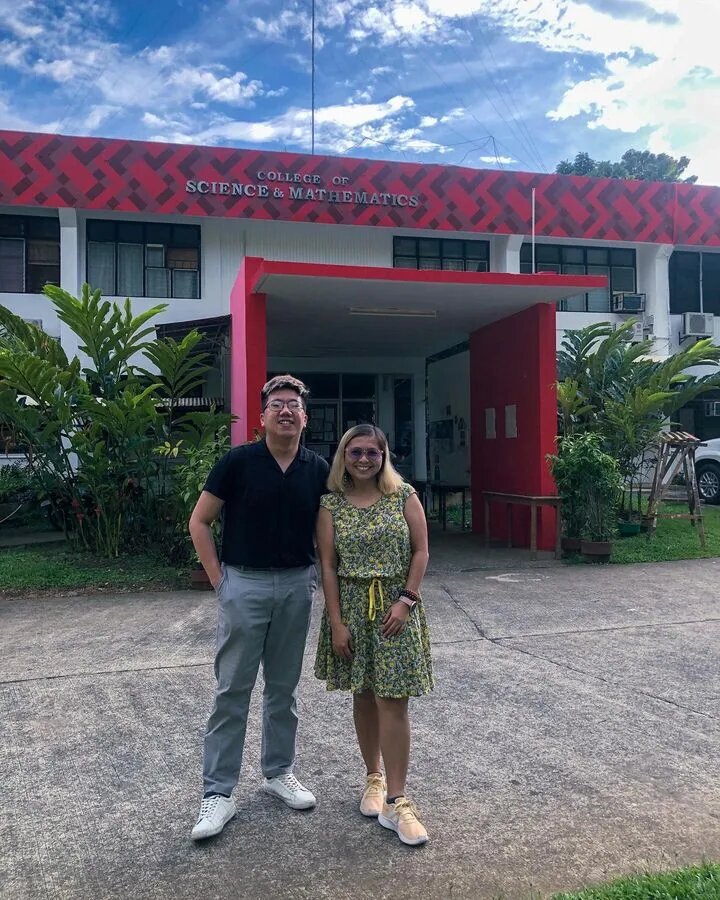
Calumba, at the College of Science and Mathematics. Photo courtesy of VR C. Adaptar.
————
Written by Virgilio Roi C. Adaptar for the UP Pagtatapos 2023 microsite. https://up.edu.ph/pagtatapos-2023/
Source: https://up.edu.ph/finding-your-own-groove/
